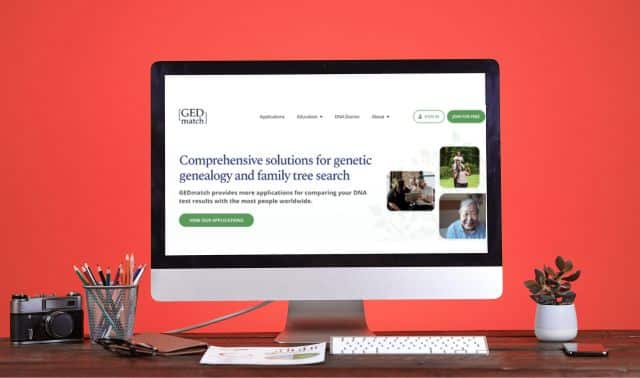Sign up for the Family Tree Newsletter! Plus, you’ll receive our 10 Essential Genealogy Research Forms PDF as a special thank you.
Get Your Free Genealogy Forms
"*" indicates required fields

Q: What does it mean to opt in to research studies through DNA companies? Should I?
A: Nowadays, we’re bombarded by endless consent forms. Accepting terms and conditions has become so automatic that it seems like no one ever actually reads them (other than the person who wrote them). It’s easy to get sucked into this same robot response when we register our DNA kits for testing by a laboratory, such as AncestryDNA.
But you’re asking a good question: What is consent to research, and should you accept it? When you register a DNA kit, there are actually at least two forms of consent you have to consider.
The first is whether you permit the company to do the actual DNA test. (You’d think it’s consent enough for you to have gone through all the trouble of purchasing a kit and spitting in it/swabbing your mouth with it, but apparently not.) You’ll have to check the box for that option to have your DNA analyzed.
But you’ll also be presented with a second opportunity to consent, either as a box when you activate your kit or as a survey that appears after you test. This asks whether you want to opt in to research—and this consent isn’t mandatory to have your DNA tested.
The word “research” is a broad term. In general, the research studies indicated by major commercial DNA testing companies fall into at least one of two fields: health, and genetic ancestry (e.g., human migration). Some of these tests are designed to study genetic diseases or conditions, while some hope to develop new treatments for them. Others seek just to improve the accuracy of a company’s tests and results. Make sure you read what “research” entails at your testing company:
- 23andMe Research Participation and Consent
- AncestryDNA Informed Consent
- Family Tree DNA Privacy Statement
- Living DNA Research Consent
- MyHeritage DNA Informed Consent
Note that, as long as they send you an email about changes, companies can modify these terms and conditions any time they want. So make sure you’re receiving—and actually reading—those emails.
And what is it, exactly, that you’re handing over? Each of the five major genetic genealogy companies has a slightly different definition of what is considered “your sample.” At AncestryDNA, for example, your DNA is “all information and Biological Samples that you share with us,” plus a list of other items that includes your family tree data. So it isn’t necessarily just your DNA the companies are using, but other information you may have provided as well.
One important caveat for research studies: All your personal information is de-identified. As such, bad actors will not be able to single out your data specifically, or to tie it to your name. In addition, you can change your mind at any time and opt yourself out of future research—or delete your DNA data altogether. (Though, of course, your information will remain part of any bodies of research published since you opted in initially.)
So should you opt in? That’s entirely up to you. The question gets to the heart of a problem we face every day: Do we want to give up some of our privacy in order to achieve something we perceive to be of greater value? Whatever you choose now, periodically evaluate your decision. If you decided to opt in originally, make sure your testing company is still aligned with your current goals and values.
Last updated, May 2020. A version of this article appeared in the May/June 2021 issue of Family Tree Magazine.




